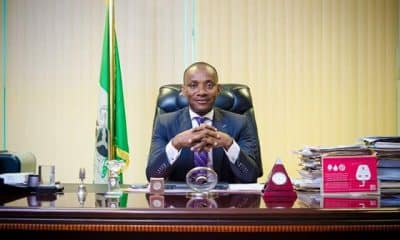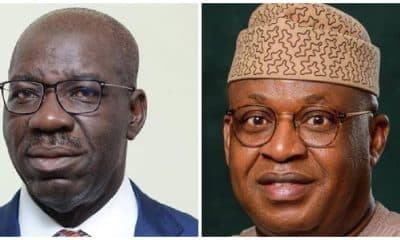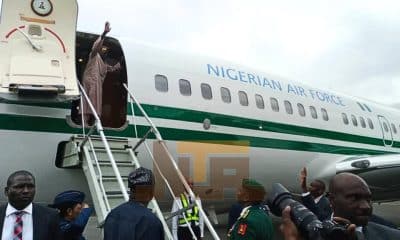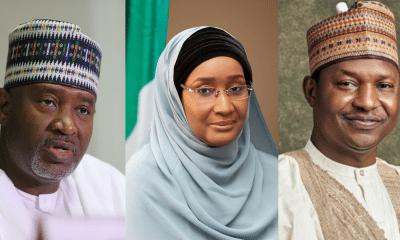Nigeria News
Kyari Meets Tinubu In Aso Rock, Speaks On Fuel Subsidy Return
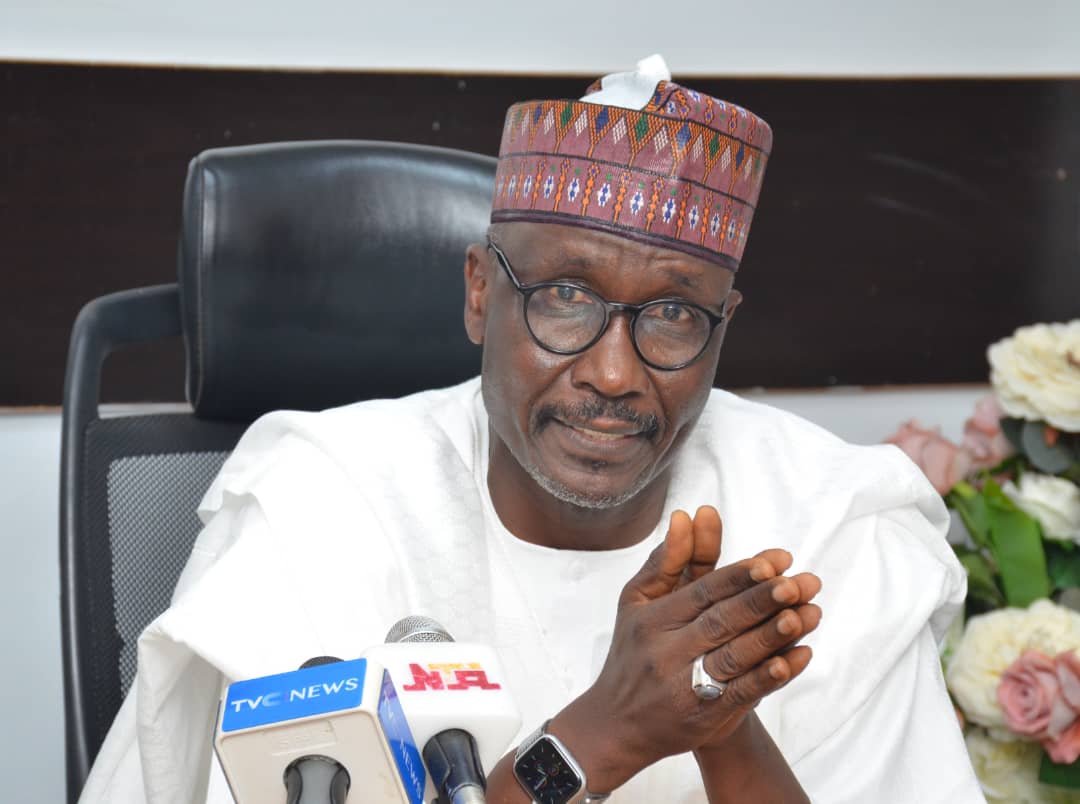
The Group Managing Director and Chief Executive Officer (GCEO) of the Nigerian National Petroleum Company Limited (NNPCL), Mele Kyari, has denied claims that the government has returned fuel subsidy.
Recall that President Bola Tinubu, on May 29, during his inauguration, announced the end of the fuel subsidy regime, saying that the subsidy payment was not captured in the 2023 budget.
But oil marketers and organised Labour have recently alleged that the government had restored the subsidy, contrary to its earlier resolve, claiming that with the removal of the subsidy, fuel pump price stability, despite fluctuations, is unexplainable.
However, speaking with journalists at the Presidential Villa, Abuja, after a meeting with President Tinubu on Monday, Kyari said there is no fuel subsidy and the policy has not been returned.
The NNPCL boss said that the oil company is recovering its full cost from the products that it has imported.
He said: “I told you there’s no subsidy whatsoever, we are recovering our full cost from the products that we import. We sell to the market, we understand why the marketers are unable to import.
“We hope that they do this very quickly, and these are some of the interventions the government is doing. There is no subsidy.”
NNPCL Returns To Be Sole Importer Of Petrol
In a related development, Kyari has revealed the NNPCL is now the sole importer of petrol into the country, stating that foreign exchange issues have not allowed private companies to import petroleum products.
Kyari said this on Monday during the ongoing Energy Labour Summit organized by the Petroleum and Natural Gas Senior Staff Association of Nigeria (PENGASSAN) in Abuja.
According to Kyari, the NNPCL has once again become the sole importer of petrol since private companies cannot access foreign currency due to shortage issues.
He said: “We are the only company importing petrol into the country. None of them can do it today. For them, access to foreign exchange is difficult. We create foreign exchange (FX), therefore, we have access to FX, while their access to FX is limited.”

